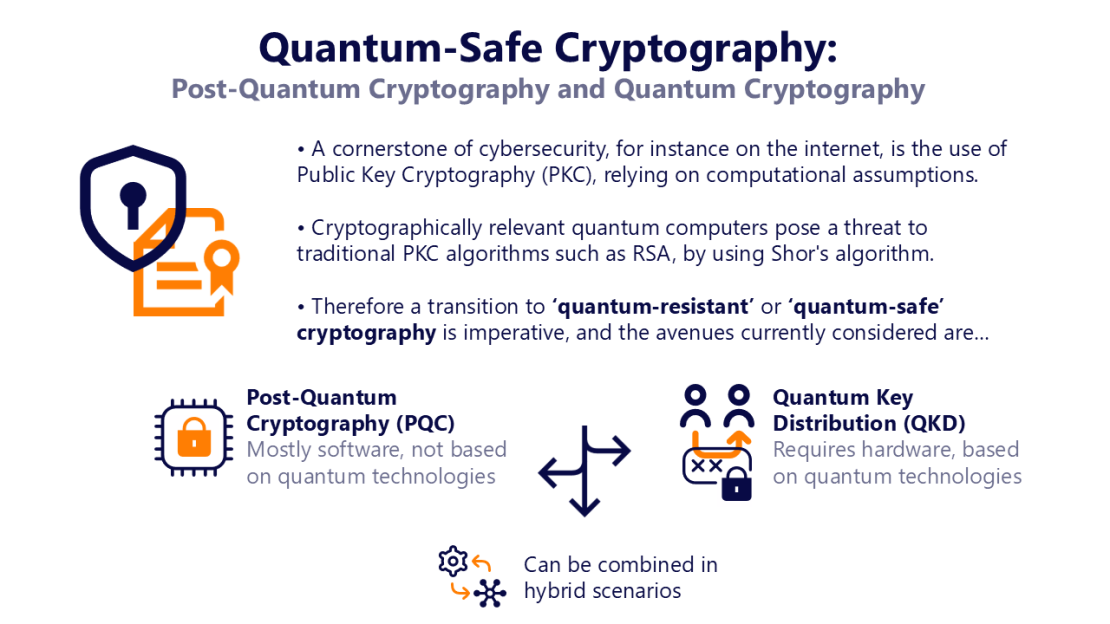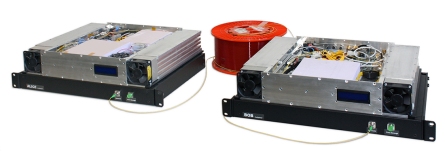
Communication
Communication security by quantum-safe cryptography is of strategic importance to consumers, enterprises and governments.

A graphic explaining quantum-safe cryptography, to which both PQC and QKD belong.
Communication security is of strategic importance to consumers, enterprises and governments alike. At present, it is provided by encryption via classical algorithms, which could be broken by a quantum computer. This motivates the development of quantum-safe cryptography, that is, encryption methods that quantum computers could not break. Secure solutions based on quantum encryption are also immune to attacks by quantum computers, and are commercially available today, as is quantum random number generation – a key primitive in most cryptographic protocols.

University prototype QKD system capable of autonomous operation and key distribution over more than 300km
But they can only function over distances of less than 500 km: quantum information is secure because it cannot be cloned, but for the same reason it cannot be relayed through conventional repeaters. Instead, repeaters based on trusted nodes or fully quantum devices, possibly involving satellites, are needed to reach global distances.
The advantage of quantum repeaters lies in extending the distances between trusted nodes. The building blocks for fully quantum repeater schemes are twofold: a small quantum processor and a quantum interface to convert the information into photons similar to the optoelectronics devices used in today’s internet, but with quantum functionality. These building blocks have already been demonstrated in the lab, but years of R&D are still needed for them to reach the market.
As soon as this happens, true internet-wide quantum-safe security, sensor networks, or distributed quantum computing, could become a reality: quantum internet.
For more information on Quantum Communication, check out the topics below or the hand-picked educational videos in our Quantum Playlist.


